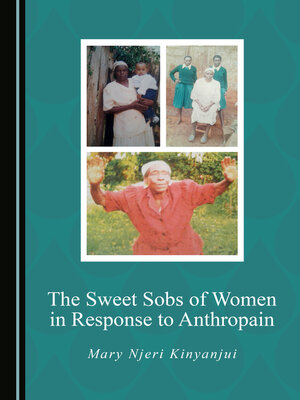
Sign up to save your library
With an OverDrive account, you can save your favorite libraries for at-a-glance information about availability. Find out more about OverDrive accounts.
Find this title in Libby, the library reading app by OverDrive.



Search for a digital library with this title
Title found at these libraries:
| Library Name | Distance |
|---|---|
| Loading... |
Anthropain is pain inflicted by human beings on other human beings. Women experience anthropain in the negotiation of their everyday lives. This book tells the stories of eight women and their reactions to anthropain encountered as they engage in their respective socio-economic and political struggles. The eight women are drawn from a village in Africa. They express their feminine utu (humanness) through what is termed here "sweet sobs." They weep in pain, but turn their tears into creative energy that generates resilience, hope, productivity, inspiration, positive change, and sustainable development. This book is about shunning the ostrich mentality, avoiding living in denial, turning lemons into lemonade, and acknowledging that, while life will not always be fair, one has to negotiate in life to achieve desired outcomes. It is a celebration of women's resilience, creativity, and bouncing back amidst adversity. While the issue of class, privilege, race, ethnicity, and stereotyping has divided the global women's movement, the book represents a handy common denominator to rally women to stop violence, gender stereotypes, and exploitative economic relations and leave a positive legacy that inspire others. The analysis is illuminated by Gikuyu orature, womanism, and feminism. It contributes to the understanding of the feminist crisis in the public domain, in corporate and government boardrooms, and at the grassroots level in peasant and economic informal activities and in rural households and informal settlements. It calls for the re-evaluation of current gender methodologies, which portray women as victims of patriarchy, exploitative economic relations, and climate change. It demonstrates the power of the story as a tool of gendered research and women's empowerment.







